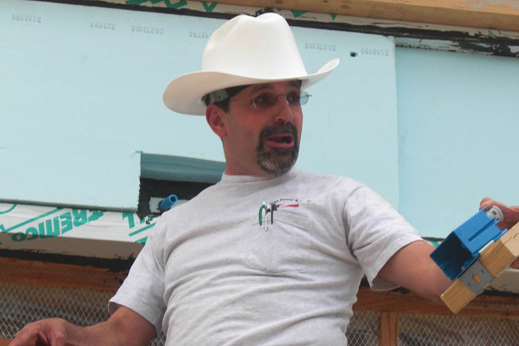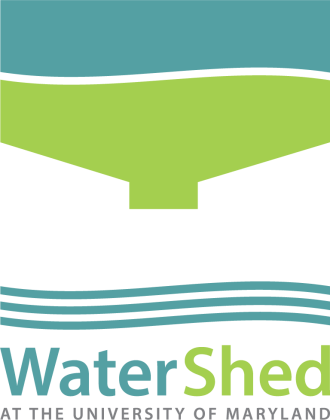
John Cartagirone, THE veteran Team Maryland Mentor
Photo Credit: Aditya Gaddam
It might be safe to say that John Cartagirone is one of, if not THE veteran decathlete on the Maryland Solar Decathlon Team. A master electrician by trade and owner of American Power & Light out of Bowie, MD, John mentored Team Maryland in 2005, 2007 and is now back for 2011. “My wife refers to herself as the Solar Decathlon widow,” he jokes.
John is a literal powerhouse for Team Maryland; while he has helped design and install the electrical systems of the house, he can be found pitching in everywhere on site, imparting his years of construction experience – and two past decathlons – to help make WaterShed’s site an easier, smoother, and safer place to work. He is also a great friend to generations of Solar Decathlon team members, mentors, and faculty. Below John talks about how even though the students change, the lessons and rewards stay the same.
What has been your favorite aspect of working on WaterShed?
JC: My biggest enjoyment is seeing the progression of these students, both in their knowledge of the craft and as individuals. At the beginning of the project a lot of them didn’t know their way around tools. It’s been very rewarding for me to impart my knowledge, teaching them what tools to use and when, why we use them, and how to do it safely. With that knowledge, they are all able to pitch in and collaborate with their peers and mentors very nicely. It’s also been a pleasure to see how they evolve as individuals; who pops up as a leader, who is detail oriented, who is the go-getter. Their personalities really shine through.
What do you hope the students take away from working with you on WaterShed?
JC: I hope, as they move into a professional career, this experience has shown them everyone has something to contribute at every level and everyone has a valid point of view. By talking ideas through with tradespeople and sharing knowledge across the board they can collaborate to create something really amazing. This project is a great example of that; it rivals any professional quality project that I’ve seen.
What have you learned from working with the students this year?
JC: There is no doubt I learn as much from them as they learn from me. I’m not a big computer guy, but working with these kids has exposed me to some amazing stuff I didn’t even know was possible. They have access to very new and cutting edge technologies, like drawing and plan making programs that we don’t have and has made our work on site a lot easier. It’s been fun to see what they can do in that respect, and their ideas come to life.
How important are competitions like the Solar Decathlon in respect to the future of architecture, building technology, and construction?
JC: Huge! Competitions like the Solar Decathlon are a big service for the industry. Any time you can teach a budding architect or electrical engineer while they are still willing to be taught, it makes them more apt to be open-minded about the possibilities. That not only changes the future of building but also makes it so much easier on the job site. Students had to interact with multiple disciplines here, and the industry will benefit greatly from that collaborative spirit.
What do you hope people will take away from WaterShed when they visit it on the Mall in September?
JC: I hope visitors take away the whole package: this house is not only eco-friendly, but it co-mingles with the environment. If we start building things like this on the Chesapeake watershed, the bay and our eco-system will be improved quite a bit. There is an old boy scout saying, “Leave no trace.” The industry’s version of that saying is WaterShed. There is a way to do this construction so it doesn’t have to impact our environment, but instead, enhance it.
